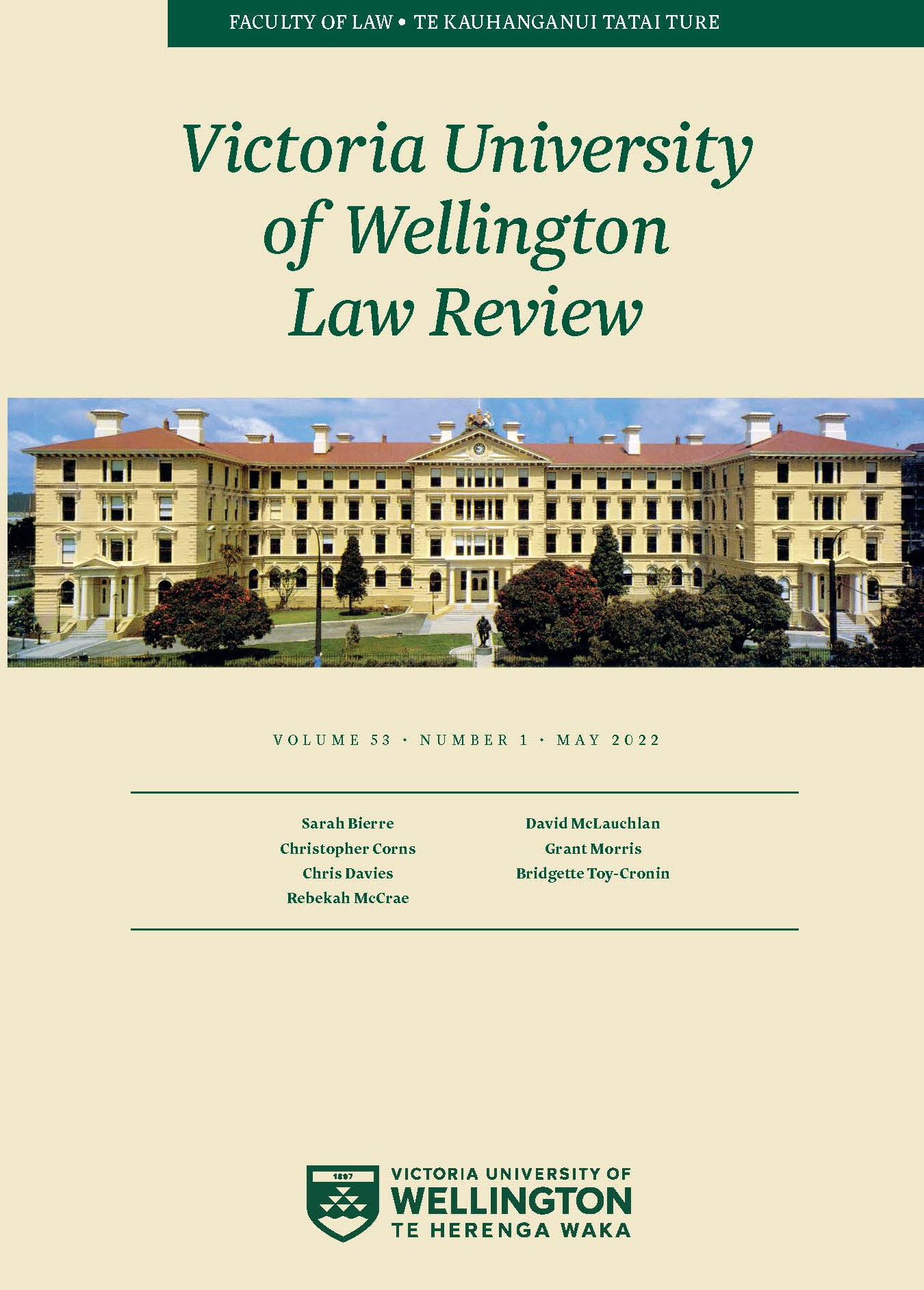Has the Trusts Act 2019 Abrogated the Court's Inherent Jurisdiction to Order Disclosure of Reasons for Trustees' Decisions to a Beneficiary?
DOI:
https://doi.org/10.26686/vuwlr.v53i1.7582Abstract
Prior to the Trusts Act 2019 (the Act), a court was able to exercise its inherent jurisdiction and order that certain trust information be made available to a beneficiary to uphold the trustees' common law "duty to account" to beneficiaries. However, in exercising that inherent jurisdiction, the court would consider a number of factors, including whether the information contained reasons for trustees' decisions. A beneficiary was not normally entitled to such information at common law. However, a court was able to make an order for disclosure of reasons for trustees' decisions where this was justified. The Trustee Act 1956 was silent on the "duty to account" and on any corresponding obligations for trustees to provide trust information to beneficiaries. The Act creates a significant shift from the pre-Act regime in that it sets out the obligations on trustees to provide trust information to beneficiaries. Interestingly, the Act expressly excludes "reasons for trustees' decisions" from the definition of "trust information". As such, trustees' obligations under the Act do not apply to that information. This raises the question whether the Act abrogates the pre-Act inherent jurisdiction of the court to order disclosure of trustees' reasons for their decisions. This article considers the scope of the court's inherent jurisdiction where a matter is regulated by statute and analyses the Act to answer this question.
Downloads
Downloads
Published
How to Cite
Issue
Section
License
Authors retain copyright in their work published in the Victoria University of Wellington Law Review.


